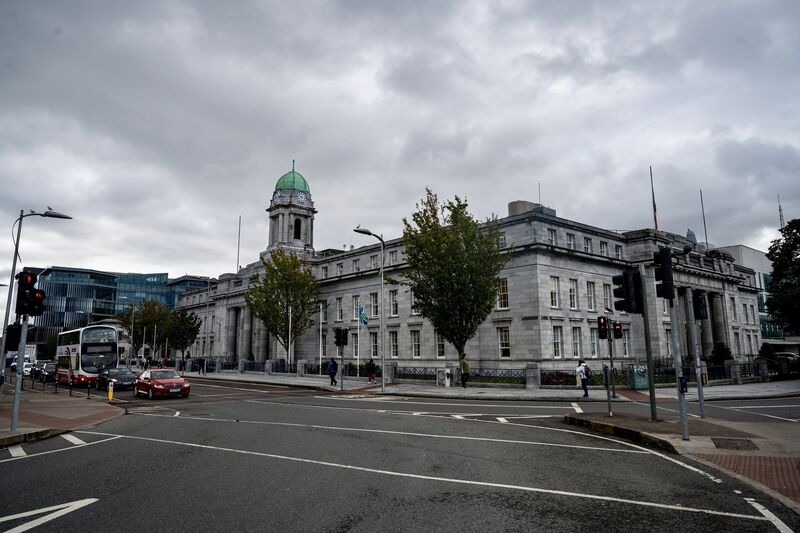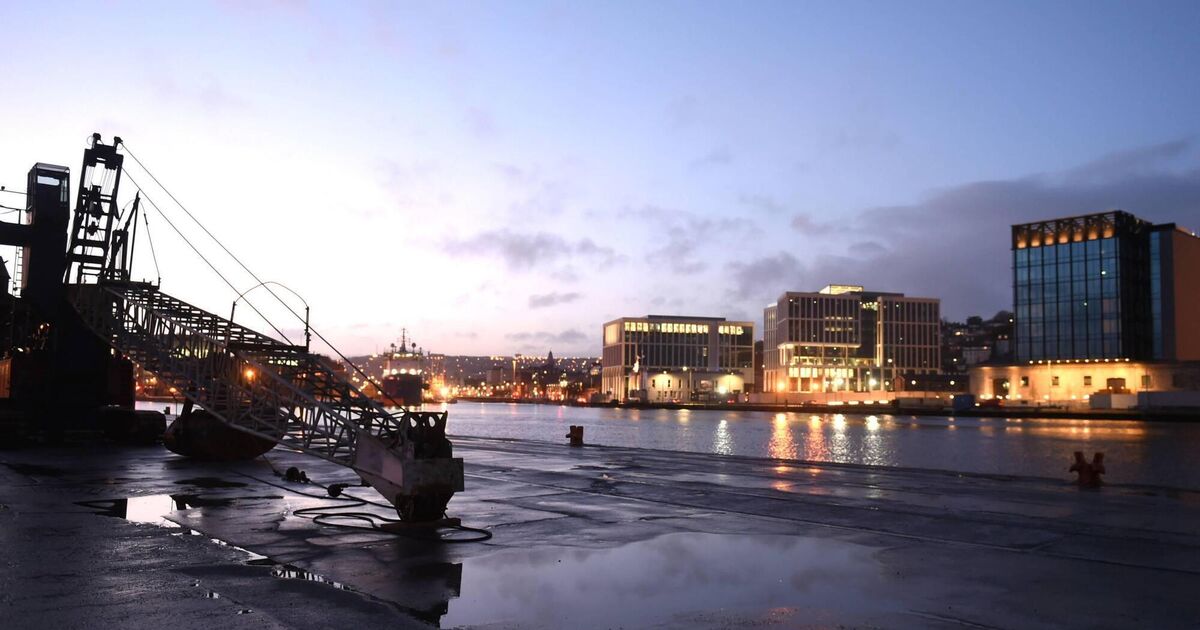When I was growing up, I was told that Cork was the “real capital”. I now know that’s a load of codology. Cork is as lethargic as the morning after a session.
If our neighbours up in Limerick weren’t ploughing ahead with proactive city-building and placemaking, we might be none the wiser. But the comparison is unavoidable.
So when I read about councillors jetting off on their annual St Patrick’s Day trade missions, it makes me think: forget about Boston or Brussels, send them to Limerick. Show them what city-building looks like.
Or at the very least, send them to Waterford, where the council managed to pull off a citywide painting scheme, something that’s seen as science fiction here.
Everyone I talk to, every comment I read; people are unhappy with the council and have been for years. A total coincidence perhaps?
 Cork has a City Hall separate from her people, distant, defensive, and often unwilling to listen. Its citizens merely a nuisance. File picture Chani Anderson
Cork has a City Hall separate from her people, distant, defensive, and often unwilling to listen. Its citizens merely a nuisance. File picture Chani Anderson
It looks as if the whole city can see the problems, but City Hall is under some kind of enchantment veil where everything is great, they couldn’t be doing better, and Corkonians should be considering themselves lucky.
It’s a level of disconnection beyond words. Isn’t the entire purpose of a council to represent the passions of its people? To hold the city, shape it, and build it in line with its citizens’ desires? Instead, we’re left with a City Hall separate from her people, distant, defensive, and often unwilling to listen. Its citizens merely a nuisance.
“Bins? Public Toilets? No, this is the first we’ve heard of it!” This reflects a wider dysfunction in Irish government but it doesn’t have to. We can see in pockets, like Limerick, what happens when a real effort is made to take back control of the future and do city-building right. Not this lethargic, stagnant, haphazard approach that Cork has become all too familiar with.
What’s helped Limerick is leadership. They voted for a directly elected mayor. They chose more local power, and now they’re using it. Cork, on the other hand, voted against the same opportunity. The uncomfortable truth is the majority of people in this city voted against Cork having more power.
In Limerick, we see citizen engagement through multiple public events, scenario testing, and real dialogue. Partnerships with UL, ENoLL and the UN. A deliberate effort to transform upper floors into homes for people.
Their entire narrative is built around transformation with words like “future,” “change,” “greatness,” “ownership of direction.” And they back it up with practical initiatives: housing, outdoor space, compact growth, climate action, green civic spaces.
Cork has plans too, plenty of them. But they exist on paper, and only on paper.
The easiest practical step is to engage with the Public Participation Network. If the PPN is the only way the council officially recognises public input, then it should be made impossible for them to dismiss. Two hundred members can be ignored. A thousand can’t. Ten thousand definitely can’t.
From people inside the network, I’ve heard it described as toothless. People leave feeling deflated. From the outside, I’ve had more traction with my own ideas on YouTube in the last six months than I ever would have if I had brought them via the PPN.
But this is not a criticism of the people who attend. They are right to be attending. They are right to be invested in the city. But being invested and getting outcomes are two separate things. At its heart the PPN has become a case study of how Cork mistakes process for progress – but strengthening it requires numbers.
Joining is straightforward: community, voluntary, environmental, or social inclusion groups can register so long as they’re not-for-profit, transparent, and open to members. If you don’t have a group, form one. Three people, a constitution, and a commitment to Cork is enough to qualify.
If the PPN is treated as a token exercise, then let’s turn the token into a movement.
Limerick shows what happens when citizens are invited to co-author their city’s future. Cork shows all the signs of what happens when we don’t push hard enough to demand that role. The choice is ours: we can remain the “real capital” in name only, or we can take that title seriously and start building a city worthy of it.
In the future, Corkonians should push for a second plebiscite on a directly elected mayor, especially if Limerick’s experiment proves a success. Waterford too deserves the same chance.
Alternatively, the Oireachtas could bypass a plebiscite altogether and legislate directly for a Cork mayor with executive powers, provided there is political will.
Right now, the balance of power is warped. The Chief Executive has too much power. The bureaucrats have too much power. And the councillors who we voted for, have too little. That imbalance shows in the sense of disenfranchisement felt across the city.
While we’re probably the poorest run city in Ireland there is one thing we can change straight away: our expectations. For too long, Corkonians have shrugged their shoulders, walked past the problems, and lived with them.
Low expectations have become the culture. That has to end. We need to expect much more of the people who govern us. And we need to expect more of ourselves as citizens too: more involvement, more pressure, more imagination.
Cork can’t be the ‘real capital’ if it’s run like a sleepy outpost. The veil has to be lifted, and only citizens can do it. Raise the expectations, and everything else follows. Then maybe Cork can live up to the title it loves to claim.
Kevin Collins runs a YouTube channel about Ireland’s past, present and future.
